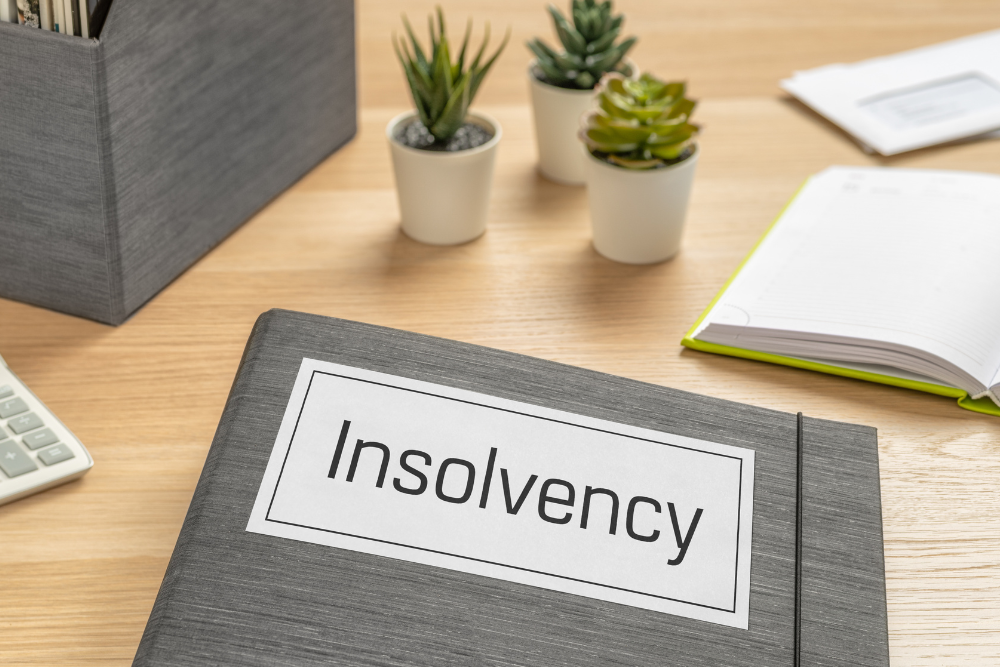The Greatest Guide To Insolvency Practitioner
Table of ContentsInsolvency Practitioner Fundamentals ExplainedUnknown Facts About Insolvency PractitionerThe 8-Second Trick For Insolvency PractitionerHow Insolvency Practitioner can Save You Time, Stress, and Money.Fascination About Insolvency Practitioner
Whether you need to make use of a bankruptcy professional (IP) to liquidate your company depends on numerous aspects. While engaging a bankruptcy professional for all forms of liquidation is not a lawful demand, doing so can frequently streamline the procedure and guarantee conformity with legal needs. Liquidating a business is a crucial choice that includes significant repercussions.
It is a treatment used when a firm does not have any type of financial institutions, or every one of their creditors can be settled completely with legal interest. Comprehending the different sorts of bankruptcy processes can aid you determine the most effective course of action for your firm's liquidation or other formal bankruptcy procedures itself.
This is compulsory in order to adhere to legal needs - Insolvency Practitioner. This is because IPs have the required qualifications and experience to make certain that the liquidation process is carried out according to all applicable legislations and laws. By engaging an accredited bankruptcy practitioner, you can have assurance recognizing that your firm's liquidation process will be dealt with professionally and in conformity with the pertinent lawful requirements
More About Insolvency Practitioner
The bankruptcy expert is assigned as a liquidator and is liable for taking care of the firm and liquidator's financial obligations impressive obligations and possessions. This process involves liquidating the firm's possessions and distributing the proceeds to creditors. Upon conclusion of the procedure, the company is removed from the register at Firms Residence.
Falling short to do so can lead to personal responsibility for the business or supervisor for the lender's financial obligations. Voluntary liquidation, which includes Financial institutions' Voluntary Liquidation (CVL) and Participants' Volunteer Liquidation (MVL), is initiated by the firm's directors and investors when they can no longer pay their financial debts. In a CVL, the bankruptcy professional is assigned as the liquidator, responsible for taking care of company financial debts and all business properties.

The 4-Minute Rule for Insolvency Practitioner
By assessing the experience and experience of potential insolvency professionals, you can make certain that you select a our website specialist that special info has the essential qualifications to manage your company's liquidation process successfully. While bankruptcy practitioner-led liquidation is usually one of the most appropriate strategy for business dealing with insolvency, there are alternate techniques to take into consideration, such as striking off and partial liquidation.
It's important to evaluate all available options prior to selecting the following ideal remedy or training course of activity for your service. Striking off business' registers is an extra uncomplicated and cost-efficient method to close inactive or little business without any financial obligations or possessions. To strike off a company, its name is removed from the Companies Residence register by sending type DS01.
Before choosing striking off, it's important to evaluate the advantages and drawbacks of this strategy and think about whether it's the best choice for your business. Partial liquidation is an additional option to insolvency practitioner-led liquidation, in which a business liquidates particular possessions and liabilities while remaining to operate with the remaining properties and obligations.
A Bankruptcy Professional will have the ability to encourage you of the best strategy to take and guarantee that every little thing runs smoothly. Unfortunately, it is not feasible to sell off a business without a liquidator. Designating an authorised insolvency practitioner is needed for the process of voluntary liquidation to start.
10 Simple Techniques For Insolvency Practitioner
It is feasible to close and liquidate your company without utilizing a liquidator, given your company is solvent and you meet the eligibility demands to liquify or liquidate it. However, if your company is financially troubled, you might be called for to make use of a liquidator and start formal insolvency procedures. Here are some other helpful posts pertaining to firm liquidation in the UK:.
Remaining in a placement where you're unable to pay your firm's financial institutions is extremely stressful. In an attempt to avoid enhancing the level of debt, several firms try to work out directly with their creditors and consent to an informal arrangement. If the debt is quite small and owed to one financial institution, and the financial institution is being participating, getting in into an casual financial debt setup is possibly the finest option, instead of searching the internet for 'a bankruptcy professional near me'.
On the other hand, if there are multiple financial institutions and the degree of financial obligation is large, financial institutions might not be so ready or cooperative. In order to avoid liquidation or personal bankruptcy, it is far better to work with an insolvency practitioner to formulate official proposals and negotiate with financial institutions on your behalf.
The Buzz on Insolvency Practitioner
Whilst it is a means to handle financial obligation, there are substantial dangers included with this type Read More Here of debt arrangement - Insolvency Practitioner. If a creditor is eager to become part of a casual setup (IA) whereby the borrower has actually agreed to make normal, if lower, payments to pay back the financial debt, it is essential to stick to the contract

As a result, the financial institution is within their civil liberties to revoke the contract and request the courts for your firm to be liquidated at any moment. A formal setup that has actually been recommended by a bankruptcy practitioner in your place, and agreed by a creditor, offers a much safer option.